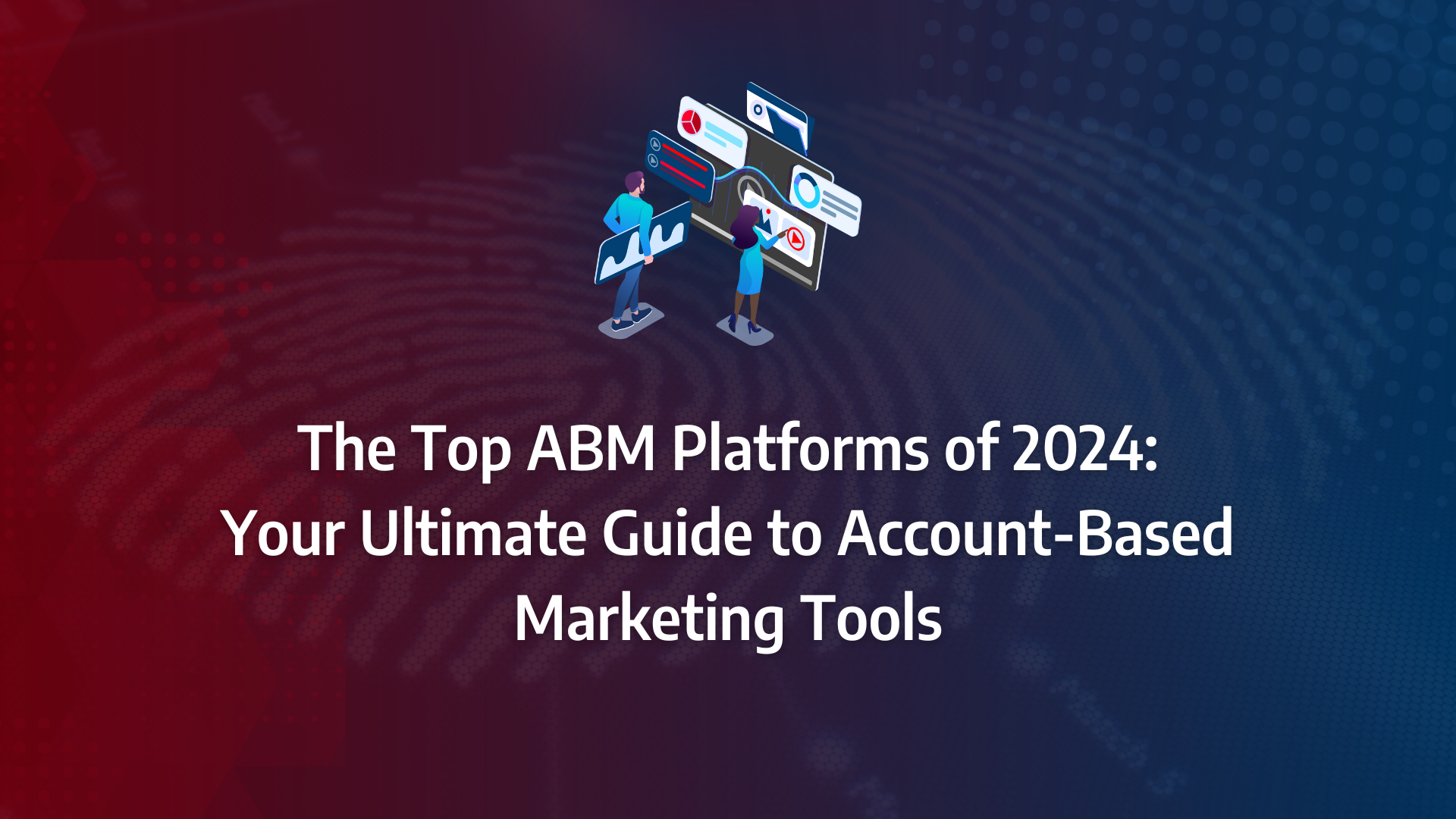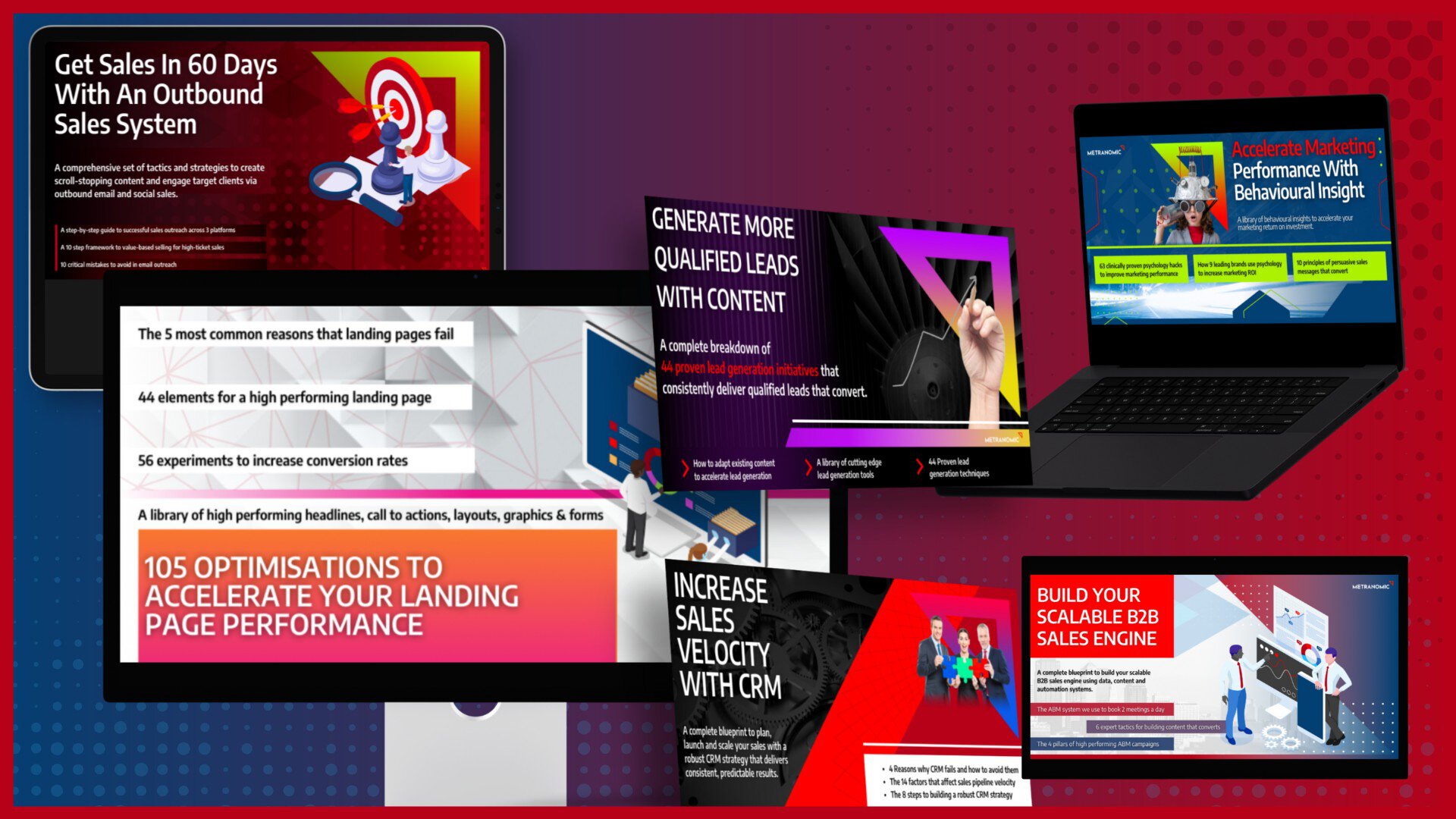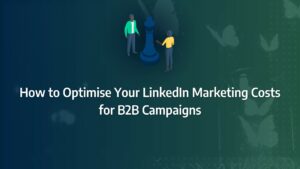When it comes to choosing the right Account-Based Marketing (ABM) platform, the stakes are high. Your decision could mean the difference between a tailored, high-impact marketing strategy and wasted resources on tools that don’t deliver. But with the sheer number of options on the market, how do you know which one will truly meet your needs?
In this comprehensive guide, we delve into the top ABM platforms, offering detailed comparisons & expert insights. By the end of this post, you’ll have a clear understanding of which platforms offer the best features, how they can be integrated into your existing marketing stack, and what steps to take to ensure a successful implementation. Let’s get started on unlocking the full potential of ABM for your business.
- Choose ABM platforms that align with your existing tools to ensure seamless integration and optimise your marketing efforts.
- Evaluate ABM platforms based on user experience, scalability, and support to make informed decisions for your business.
- Implement best practices such as setting clear objectives and KPIs when adopting ABM platforms for more effective targeting and measurement.
- Utilise data-driven insights provided by ABM platforms to personalise campaigns and improve customer engagement.
- Consider the platform’s ability to handle large datasets and its analytics capabilities to support more accurate targeting and reporting.
- Prioritise platforms that offer robust customer support and ongoing training to maximise the return on your investment.
- Stay updated with emerging trends in ABM technology to continuously refine and enhance your marketing strategies.
What are the key features of effective ABM platforms?
Key Features and Capabilities of ABM Platforms
ABM platforms are designed to streamline and enhance ABM efforts through a variety of sophisticated features, including:
- Account Identification: Pinpointing the most valuable accounts.
- Account Segmentation and Targeting: Dividing accounts into segments for more targeted marketing efforts.
- Data Management and Enrichment: Handling and enhancing account data.
- Account-Based Personalisation: Tailoring content and interactions for specific accounts.
- Multi-Channel Orchestration and Automation: Coordinating marketing efforts across various channels.
- Large Integration and Partnership Ecosystem: Ensuring seamless operation with other tools and platforms.
- Predictive Analytics and Full-Funnel Reporting: Using data to predict trends and report on performance across the entire sales funnel.
Intent data is pivotal in the functionality of these ABM platforms. By revealing the research behaviours, interests, and journey stages of target accounts, intent data informs strategies and tactics related to account identification, segmentation, targeting, and personalisation.
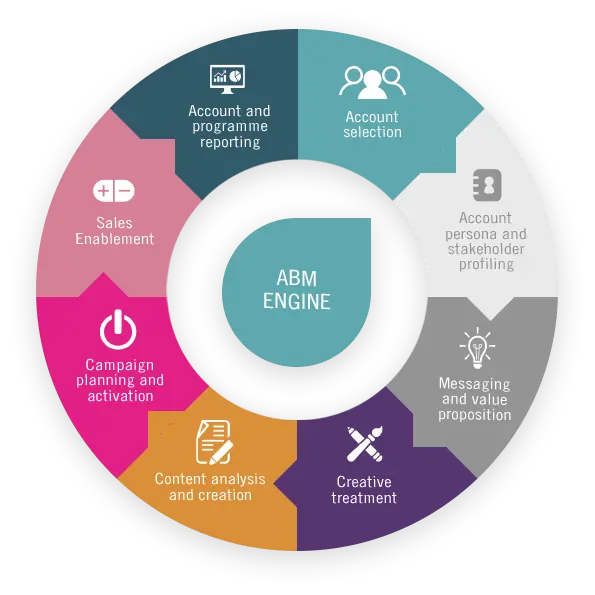
Benefits of ABM Platforms and Technology
Marketing Automation: ABM platforms facilitate the effective coordination of account-based marketing activities. When integrated with your CRM software, they enable tracking of accounts, sending nurturing emails, and measuring engagement. This is crucial for managing multiple accounts and ensuring that marketers can monitor customer progression through their journey.
Predictive Marketing and Account-Level Analytics: These solutions help identify ideal account profiles through two main features: data mining from your CRM and marketing databases, and data aggregation or external sourcing from social media, public directories, etc. This automated process allows you to set parameters for predictive marketing, focusing on industry, location, business size, revenue, technologies used, and lifetime value potential.
Advertising Automation: This enables the management and sending of customised communications based on account behaviour on your website and third-party sites. While re-targeting is a significant component, advertising automation encompasses a broader range of functionalities essential for establishing meaningful client relationships.
In summary, ABM platforms are indispensable tools in executing a targeted, efficient, and effective account-based marketing strategy. They offer comprehensive features and benefits that drive personalised engagement and measurable growth.
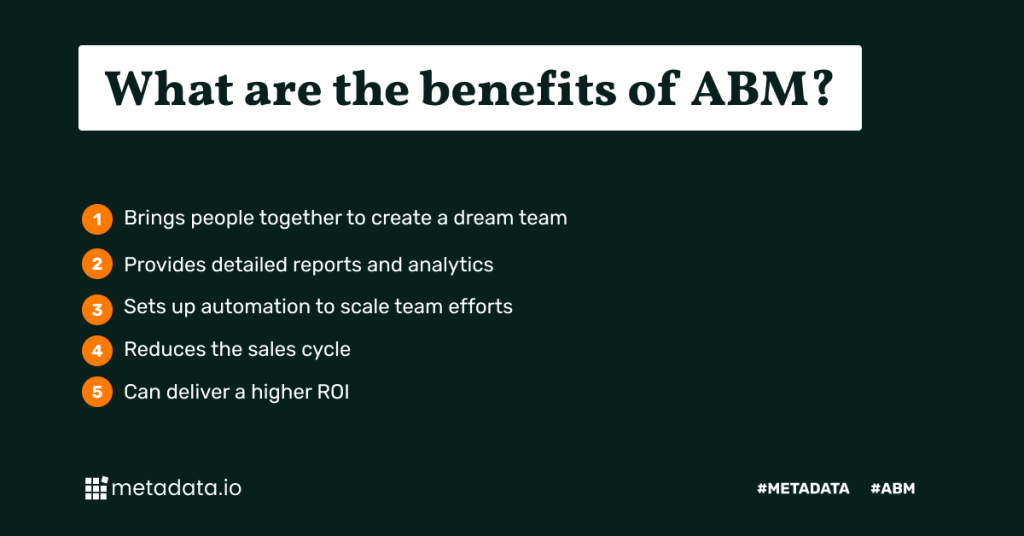
What Matters Most?
In our work, ABM platforms are not just tools for marketing; they are central to driving business growth by fostering cross-departmental alignment and ensuring a unified view of each account. Clients often discover that the key to success lies in the quality of data and its seamless integration across their tech stack. This approach typically enables precise targeting and deeply personalised customer journeys. Moreover, leveraging ABM platforms for hyper-personalisation at scale allows businesses to build stronger, one-on-one connections with accounts, significantly impacting both customer acquisition and long-term retention.Get In Touch
What Tools Can be Used for Account-Based Marketing?
Categories of ABM Tools and Platforms
Intent Identification Tools: Intent data presents a significant opportunity to identify companies most likely to buy. However, clients often find these tools disappointing, particularly for highly technical products. This may be because companies dealing with mission-critical technology or innovations are less likely to discuss relevant topics openly on social media. Despite this, certain types of intent data can still be useful. For instance, job postings can provide valuable insights into a target company’s future technology strategy. Well-known ABM platforms like Bombora and Cyance specialise in identifying intent data.
Website Customisation: Website customisation is closely related to marketing automation. Advanced marketing automation platforms often include features for website customisation. If you aim to create bespoke, personalised campaigns for your key targets, it’s crucial to extend this personalisation to your website. Sending customised emails to prospects and directing them to a generic website is counterproductive. Manual customisation can be effective but quickly becomes unmanageable beyond a handful of target companies. Powerful website customisation tools include large integrated solutions like Demandbase, and specialised tools such as PathFactory and Uberflip.
Contact Identification and Data Enrichment: Effective ABM campaigns focus on specific individuals within target companies. Eventually, you’ll need to identify these individuals and obtain their contact details. While your CRM and marketing databases are a good starting point, they are often insufficient. Additional contact data can be obtained through dedicated platforms.
Platforms like Datanyze, LeadIQ, and DiscoverOrg allow you to gather data from LinkedIn profiles, creating records with contact information. Broader capability platforms such as Terminus and 6sense also offer these services. Some systems, like Salesforce’s Lightning Data Solutions, allow you to search for contacts in their database, although this service is exclusive to Salesforce customers.
Regarding GDPR compliance, while we are not legal experts, GDPR regulations indicate that harvesting contact information is not inherently illegal. To remain compliant, your privacy policy must clearly state that you enrich and harvest data, ensuring transparency. You must also clarify that you use legitimate interest rather than opt-in to process personal data and send marketing information.
Retargeting: Given the significant investment in routing prospects from target accounts to your website, retargeting can help deliver advertising at a lower cost. CRM retargeting allows you to deliver targeted adverts to a specified audience via email or sometimes phone numbers, typically on social media or through platforms like Google.
One challenge with CRM retargeting is that you often have business email addresses, while social media platforms usually match personal email addresses. Despite this, CRM retargeting remains a cost-effective strategy to reach your target audience.
Source: Hubspot
Leading ABM Platforms
HG Insights – Best for Account Targeting
HG Insights boasts the world’s largest database of Technology Intelligence, making it the premier choice for account planning. This platform excels in identifying target accounts, segmenting them, and building audience lists for your ABM campaigns. With access to granular, account-level insights on companies globally, including technographic, firmographic, and intent data, HG Insights enables precise targeting, ensuring the success of your ABM campaigns.
RollWorks – Best for Account-Based Advertising
RollWorks is the ideal companion for securing significant accounts. This account-based marketing platform is designed to help you identify, engage, and convert high-value accounts through targeted advertising campaigns. RollWorks offers numerous benefits, such as account scoring and audience matching. The platform’s excellent analytics and reporting capabilities allow you to see which ads are performing well and which are not, providing valuable insights to refine your ABM strategy.
Dux-Soup – Best for Account-Based Sales Tactics
Dux-Soup is a LinkedIn automation tool that assists businesses in generating leads, building connections, and expanding their network on social media. It automates many repetitive, time-consuming tasks associated with LinkedIn prospecting and outreach, such as sending connection requests, personalised messages, and follow-ups.
Sendoso – Best for Direct Mail
Sendoso offers numerous benefits for ABM campaigns. It helps establish a personal connection with customers and prospects, which is crucial for building long-term relationships. Additionally, Sendoso reduces the time required to execute direct mail campaigns and provides reporting features to measure the impact of your ABM strategy.
Mutiny – Best for Web Personalisation
Mutiny is an account-based marketing tool that allows you to personalise website content for your target accounts. Imagine directing any prospect, from any industry, to a landing page that addresses their specific pain points and interests. Mutiny makes this possible, enhancing the effectiveness of your web personalisation efforts.
By leveraging these top ABM platforms, you can enhance your account based marketing strategy, ensuring a more targeted and effective approach to engaging your most valuable accounts. These account based marketing tools are essential for achieving precision and success in your campaigns.
Our Tactical Recommendations
We’ve found that starting with a thorough audit of your data sources and integrating them into your ABM platform is crucial for creating a unified account view. Clients often refine their segmentation criteria within the platform, focusing efforts on the most promising accounts and using automated workflows to personalise actions based on account behaviours. From our experience, implementing account scoring within the ABM platform prioritises engagement strategies effectively, ensuring that high-value accounts receive the attention and resources they need to drive growth and conversion.Get In Touch
What should I consider when selecting ABM tools for my business?
Account Targeting Functionality
Identifying and prioritising the right accounts for your organisation is crucial to a successful ABM programme. Opt for ABM platforms that leverage AI-based technology to identify your best-fit accounts and build tiers and lists. This approach saves your team considerable time that would otherwise be spent consolidating data from various sources and keeping track of each account segment.
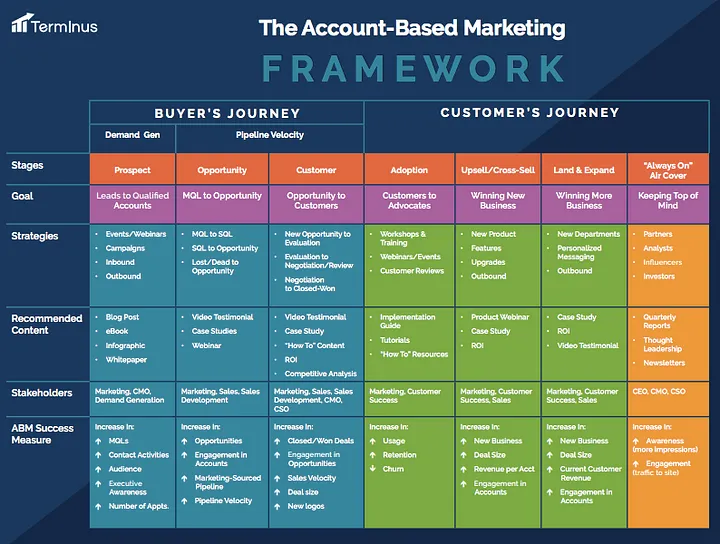
Centralised Source of Truth
Silos can cripple an effective ABM programme. A robust account based marketing software should eliminate these silos by serving as a central source of truth for everyone on the revenue team. Marketing, sales, and customer success teams should all have access to the platform to get a clear picture of any given account at any time. Since ABM is about expanding relationships with accounts by deepening engagement over their lifecycle, cross-functional teams need visibility into engagement data and the current status of each account. This insight helps prioritise engagement, understand an account’s journey, and predict when an account is at risk.
Account-Based Advertising
A valuable ABM platform should support multichannel, account-based advertising. It should make deploying highly targeted, personalised ads to engage decision-makers across an account’s buying committee straightforward. Digital ads are vital because they enable you to proactively engage your target buyers at scale, even when those buyers are unreachable via other channels. Focusing on quality over quantity, traditional ads that aim for volume are no longer adequate.
Real-Time Engagement Data
In ABM, engagement insights can reveal when a target account is highly interested. A platform that alerts your team in real time to which accounts are showing spikes in engagement and what specific content they are interacting with can empower your team to act swiftly with timely and relevant outreach. Your ABM platform should offer insights into both known and anonymous contacts that aren’t in your database. This capability allows you to identify, prioritise, and accelerate interactions with your hottest accounts, even when buyers within those accounts haven’t completed a lead form.
Full-Funnel ABM Analytics
Marketing and sales teams often face intense scrutiny because they are responsible for demonstrating ROI. ABM programmes, being relatively new methodologies for many organisations, are under even tougher scrutiny. Therefore, you need a platform that allows you to measure the success of your programme clearly, make data-driven decisions to optimise campaigns, and show how you’re driving pipeline and revenue from target accounts.
Customer Success-Driven
While best practices in ABM are evolving, many companies struggle with how to implement an account-based strategy and achieve team alignment. The customer success component is vital for ABM success, especially as most organisations are just starting to pilot their programmes. Seek a partner that provides resources, implementation and strategy support, along with a robust network of integration and technology partners.
Source: Demand Metric
How do user reviews impact the choice of ABM platforms?
Significance of User Feedback for ABM Platforms
User feedback on ABM platforms is crucial for assessing different options and pinpointing the best match for your company. These reviews provide genuine insights from other businesses and professionals who have utilised the tools, outlining their advantages, shortcomings, usability, and overall performance.
Resources for User Feedback on ABM Platforms
- Online Directories and Review Sites: Websites like G2 Crowd, Capterra, and Software Advice offer comprehensive user reviews and ratings of a broad spectrum of marketing tools, including top ABM platforms. These platforms aggregate extensive feedback from users, facilitating well-informed decision-making.
- Social Media Platforms: Many organisations and professionals share their experiences with ABM platforms on social media channels such as Twitter, LinkedIn, and Facebook. By searching for the tool’s name along with terms like “review” or “experience,” you can uncover valuable insights shared by other users.
- Vendor Websites: Vendors of ABM tools often feature customer testimonials or case studies on their websites. Although these may be selectively presented, they still provide helpful information about the tool’s functionalities and benefits.
Evaluating the Cost of Leading ABM Platforms
The expense associated with ABM platforms can vary widely due to the tool’s features, capabilities, the size of your enterprise, and the breadth of your ABM campaigns. Some platforms offer multiple pricing plans based on the number of users, contacts, or accounts, while others may apply a flat fee or charge based on a percentage of media spend.
When assessing pricing, consider the following key elements:
- Comprehensive Feature Analysis: Firstly, it’s critical to comprehend the offerings of each pricing tier. Ensure that the features and capabilities provided match your needs to effectively implement your ABM strategy. This guarantees that the chosen platform fully supports your marketing objectives.
- Growth Potential: Secondly, examine whether the ABM platform can expand in tandem with your business. As your account-based marketing initiatives grow, the platform should be able to scale, supporting an increased number of accounts and users without losing efficiency.
- Customisation and Vendor Support: Thirdly, evaluate if the pricing includes options for tailored configurations and vendor support services. Determine the necessity of this customisation and support level for your business and whether it justifies the investment.
- Seamless Tool Integration: Lastly, consider the platform’s ability to integrate with your existing technology stack. Smooth integration is crucial to ensure that the platform enhances your current workflows and offers a cohesive approach to your marketing operations.
